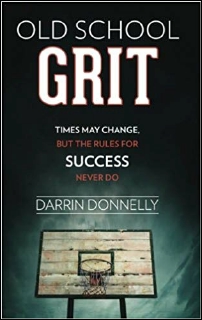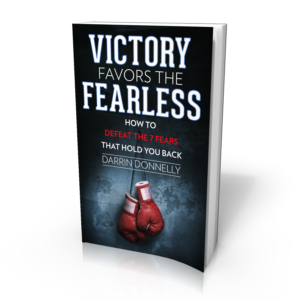 In my book, OLD SCHOOL GRIT, the main character is an archetypal “old school” basketball coach entering the final days of his long and storied coaching career. While his team tries to advance through the NCAA postseason tournament, he uses his last days as a coach to write his grandchildren letters revealing the rules for a successful and happy life. These rules provide a clear path to success in any endeavor.
In my book, OLD SCHOOL GRIT, the main character is an archetypal “old school” basketball coach entering the final days of his long and storied coaching career. While his team tries to advance through the NCAA postseason tournament, he uses his last days as a coach to write his grandchildren letters revealing the rules for a successful and happy life. These rules provide a clear path to success in any endeavor.
Because the coach in this book is a composite figure based on several of history’s greatest “old school” coaches, I think it’s important that we define exactly what an “old school” coach is.
Some people use the term “old school coach” in a negative way to mean someone who yells a lot or is too stubborn to adapt his strategies. That’s not the way I use it.
I use the term “old school” in an affectionate and nostalgic way to mean someone who adheres to what may be called “old fashioned” values and principles.
While there have been some old school coaches like Vince Lombardi and Mike Ditka known for their hot tempers and loud personalities, I would argue that calm-demeanor leaders like John Wooden and Tony Dungy are also old school coaches.
So, what exactly makes an old school coach “old school”?
I offer the following four characteristics.
Old school coaches place their faith as the foundation for their life. Whether we’re talking about coaches like Vince Lombardi and Don Shula attending Mass every morning, Bobby Bowden and John Wooden reading the Bible every day, or Tony Dungy and Dean Smith simply making it clear that their faith is the number one priority in their life, old school coaches take their faith very seriously and rely on it more than most of their colleagues.
Vince Lombardi famously told his Green Bay teams that their priorities in life should be: God, Family, and the Green Bay Packers—in that order. Old school coaches follow Lombardi’s list of priorities: Faith, Family, and then their team/job. While the long hours coaches spend on the job certainly cuts into family time at home, old school coaches do their best to incorporate family into their work life and encourage their players to do the same. It’s not a coincidence that old school coaches also try to create a family atmosphere for their teams and encourage their players to think of the entire program as one big family.
An old school coach is fearless and demanding. He teaches a can-do, never-back-down attitude and expects his players to live up to extremely high expectations. He builds his program on perseverance and toughness—both mental and physical. An old school coach is known for his relentless work ethic and his passion for building fearless players. The word “quit” is something he never wants to hear.
An old school coach believes he’s more than just a teacher of the game’s fundamentals. He firmly believes that it’s his job to mold people of high character and to instill timeless values that go well beyond the game. He wants to build people, not just players. The old school coach stresses the importance of doing what’s right, even when nobody is looking. He values integrity, honesty, and sacrifice. He teaches his players to give up their selfish inclinations for the greater good of the team. The old school coach has a very low tolerance for people who whine, complain, and pass the blame. He teaches people to take pride in their work and to take personal responsibility for what they do or do not accomplish. The old school coach doesn’t accept excuses.
Faith, Family, Courage, and Character. This is the old school code that old school coaches live by.
In my book, OLD SCHOOL GRIT, you see exactly how living by this code leads to success in everything you do.







